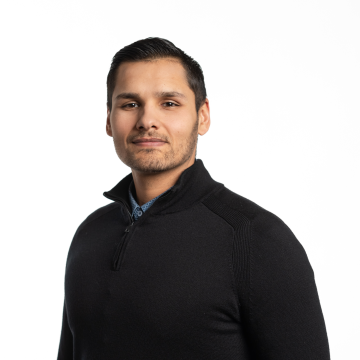Curtis Rogers
2025 Bush Fellow

Deputy Director, White Earth Nation | Anishinabe leader | Cultivator of sustainable Tribal
governance
Curtis Rogers envisions a future in which Tribal Nations like White Earth are strengthened by sustainable cultural, governmental and community-rooted systems. As Deputy Director of the White Earth Nation, he oversees programs that employ more than 1,300 people and touch all facets of Tribal life, from public safety and education to economic development. From piloting White Earth’s first Community Service Officer program to advocating for paid parental leave and embedding culture into Tribal law, he brings persistence, innovation and care to every initiative. He believes leadership should be quiet when needed, collective by design and always grounded in service.
Curtis is widely respected for his ethical leadership, quiet strength and long-range vision. He is known for creating safe, inclusive spaces where hard conversations can happen with honesty and respect. He models a culturally rooted approach that bridges generations. Under his guidance, staff feel heard, elders feel honored and young leaders are equipped to step forward.
Through the Bush Fellowship, he plans to deepen his legal and policy knowledge to advance land reclamation, build resilient leadership pipelines and ensure traditional practices are supported for generations to come.
What experiences most shaped the leader you are today?
My leadership journey began with personal loss and healing. I lost both a brother and a sister to addiction. My sister and I had the same upbringing, but our paths split when I was introduced to our culture. I believe that part of the cure to addiction is within our culture. I’m grateful for the people who saw potential in me when I didn’t see it in myself. Being introverted, I’ve learned that leadership doesn’t need to be loud. It can be humble and quiet—and still have a deep impact.
What change are you most focused on making—and why?
The White Earth Nation faces three pressing challenges: land reclamation, leadership transitions and cultural sustainability. I’ve already started addressing what I can control. I developed orientation materials for incoming leaders and am working to embed our cultural department into Tribal law for long-term funding. I want to strengthen systems that make our Nation more unified and resilient, so progress doesn’t disappear with each leadership change. My long-term goal is to create macro-level recognition for our traditional practices—so they are seen as equal to Western therapies and sustainably funded through federal and state systems.